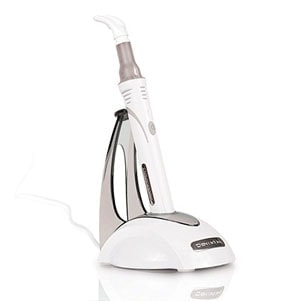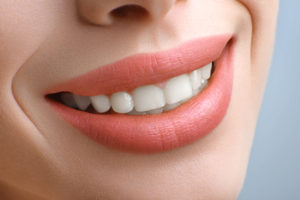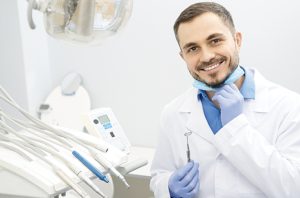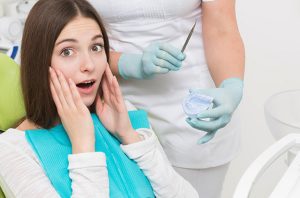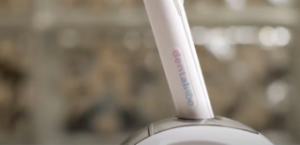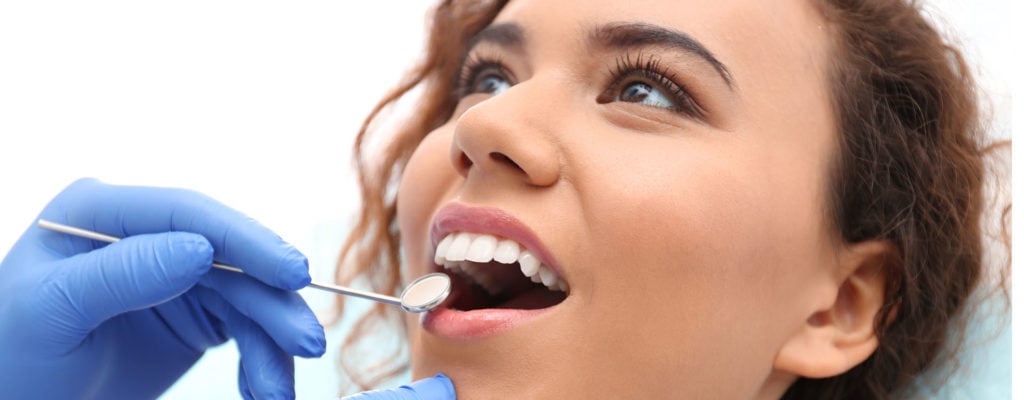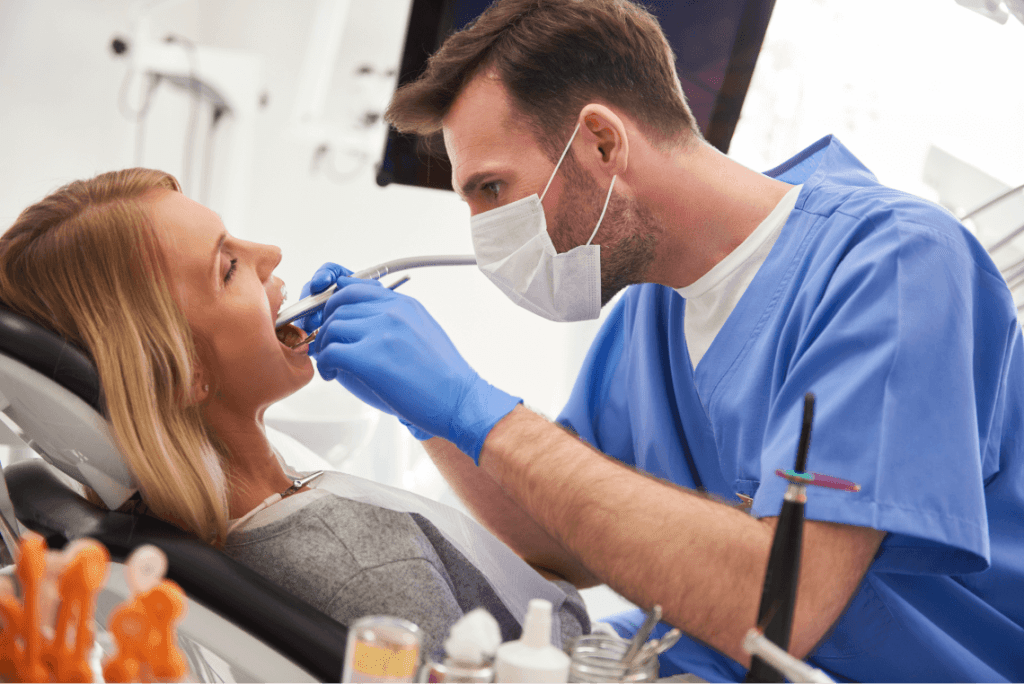Everybody wants gleaming, white teeth. What can you do to safely whiten your teeth without damaging your dental enamel? Do home remedies work to whiten teeth? Continue reading to learn how to make your teeth whiter, including options for whitening your teeth at home and even overnight.
Why do teeth turn yellow?
If you brush, floss, and see your dentist every six months for a check-up and professional cleaning, why would your teeth turn yellow? Even with good oral hygiene, it’s normal for teeth to experience some discoloration over time.
The most common reasons for yellowing teeth include:
Aging / normal wear and tear
No matter how well you take care of your teeth, they will eventually turn slightly yellow. As you age, dental enamel loses its thickness. Underneath dental enamel is a substance called dentin that is naturally brownish-yellow. Dentin is one of four layers of enamel that protect the tooth pulp. Gum recession, which can happen due to oral disease or simply aging, can expose the dentin and cause increasing tooth sensitivity and pain.
Food and tobacco
Dental enamel may be one of the hardest substances in your body, but it is also porous and will absorb pigments found in berries, coffee, tea, and wine. Enamel also readily absorbs nicotine and other stain-causing chemicals in tobacco even more quickly than food pigments.
Medications and mouthwashes
Unerupted permanent teeth in young children who take medications such as doxycycline or tetracycline may turn yellow while still in their gums. Mouthwash that contains chlorhexidine or cetylpyridinium chloride could stain adult teeth. The Cleveland Clinic further states that antihistamines, antihypertensive, and some antipsychotic medications might cause yellowing or darkening of teeth.
Dental trauma
Microscopic cracks in dental enamel and/or damage to the tooth’s pulp may cause a tooth to gradually turn yellow. Unusual discoloration, streaking, or speckling of a tooth following a traumatic event could indicate bleeding within the tooth’s pulp that requires emergency treatment.
Genetics
If you are under 40 years old and practice good oral hygiene but your teeth are yellow, it’s likely you have parents or grandparents with the same problem. The thickness of your dental enamel is largely determined by your genes, and it could be that the layer of dentin is showing through your prematurely thinning enamel.
Can yellow teeth be whitened?
Yes, in most cases, you can whiten yellow teeth by using over-the-counter methods or visiting a dentist for a professional whitening treatment. However, the extent to which yellow teeth can be corrected depends on whether the stains are surface stains (extrinsic) or structural stains (intrinsic).
Most extrinsic tooth stains respond well to whitening gels and strips. These are superficial stains that are often caused by coffee, tea, cola, wine, or tobacco products. However, intrinsic yellowing starts on the inside of a tooth and is typically caused by antibiotics, excessive fluoride exposure or, more rarely, a severe illness. Intrinsic stains can sometimes be removed by a lengthy bleaching process, but most people opt for concealing them with porcelain veneers or dental crowns.
The best approach for making your teeth whiter may also depend on other factors affecting your teeth. Before starting any teeth whitening program, always visit a dentist for an examination to determine the cause of your tooth discoloration.
Whitening trays
One of the more convenient and affordable methods for whitening discolored teeth is the tray whitening system provided by dentists. After making an impression of your mouth, a dentist will send the impression to a laboratory where technicians craft mouth trays that match your teeth. You then apply professional-grade whitening gel to the inside of the trays and wear them at home according to your dentist’s instructions.
Teeth whitening mouth trays are form-fitting, flexible trays that prevent the whitening gel from being diluted by saliva as it works to remove stains. When wearing trays, you don’t have to worry about tasting the gel, a problem common to people using brush-on whitening gels. Additionally, the total experience of whitening teeth using custom trays is significantly better than over-the-counter whitening treatments and naturally leads people to stick with their teeth-whitening plan.
Bleaching gels
Professional strength bleaching gels contain carbamide peroxide, an enamel-friendly chemical containing nitrogen, carbon, oxygen, and hydrogen molecules. As soon as these molecules come in contact with stained tooth enamel, they begin dissolving stains by breaking them apart.
Once you achieve your desired shade of white using bleaching gel, you’ll need to brush your teeth twice daily, use a fluoridated oral rinse, and floss regularly to prevent the stains from returning. Ask your dentist about professional bleaching gel treatment for whitening your teeth.
How can I make my teeth whiter overnight?
Some over-the-counter (OTC) tooth whitening solutions can make a noticeable difference even overnight, depending on the extent of your tooth discoloration.
Teeth whitening strips
Whitening strips are coated with a gel containing carbamide peroxide or hydrogen peroxide. Carbamide peroxide is essentially hydrogen peroxide, as its molecules break down and convert to hydrogen peroxide as soon as it comes into contact with moisture, like water or saliva.
When hydrogen peroxide penetrates the dental enamel, it begins bleaching molecules called chromogens, which are responsible for extrinsic tooth discoloration.
Although OTC whitening strips are safe to use, they should be applied to teeth according to the instructions on the packaging. Excessive use of strips can potentially cause demineralization of teeth if enamel is weakened. Most people using whitening strips experience increased tooth sensitivity and mild gum irritation for several days. If sensitivity and irritation persist for more than five days, stop using the whitening strips until these side effects have disappeared.
Spa whitening treatments
Some beauty salons and upscale spas offer one-day teeth whitening treatments involving strips coated with chlorine dioxide. Although chlorine dioxide is advertised as being more effective than hydrogen peroxide, it may damage the tooth enamel and make teeth even more susceptible to staining in the future.
Some chlorine dioxide products advertised by spas claim this ingredient will lighten porcelain veneers or dental crowns. This is simply not true. No OTC or professional teeth whitening treatments can change the color of implants, veneers, crowns or fillings. Only your natural teeth will respond to whitening gels or strips.
Charcoal for whitening teeth
Anecdotal reports that brushing your teeth with activated charcoal can whiten teeth overnight have been debunked by the American Dental Association. Proponents of charcoal for teeth whitening claim that activated charcoal powder absorbs yellow stains and oral bacteria. There is no clinical evidence supporting this claim, nor is there evidence that activated charcoal harms teeth.
Does baking soda really whiten teeth?
Baking soda may help reduce teeth yellowing and staining because it is an abrasive, not a bleaching agent. Baking soda contains microscopic salt crystals that may reduce the appearance of stains on dental enamel. Toothpastes containing baking soda are safe to use every day and are often effective for whitening teeth. Baking soda is also less abrasive than alternative polishing agents that may scrape the enamel too harshly or contain questionable bleaching agents.
What baking soda can’t do is remove deep or intrinsic stains. If you brush your teeth with baking soda for at least two to three weeks and don’t notice an improvement, you’ll likely need to visit a dentist to find out what type of stains are discoloring your teeth.
If you know your teeth are yellow due to smoking or drinking tea and coffee, baking soda may be able to help remove stains. However, be aware that baking soda and baking powder are two different substances. It’s easy to confuse the two since they are both white and powdery. But baking powder is too finely pulverized to work as an effective abrasive for removing enamel stains.
The best way and most effective method for whitening teeth is to make an appointment with a certified pain-free dentist in your area. Your dentists can determine what type of stains are yellowing your teeth and begin a safe whitening treatment that you can depend on to give you the whitest smile possible. Visit our directory to find a dentist near you today.

